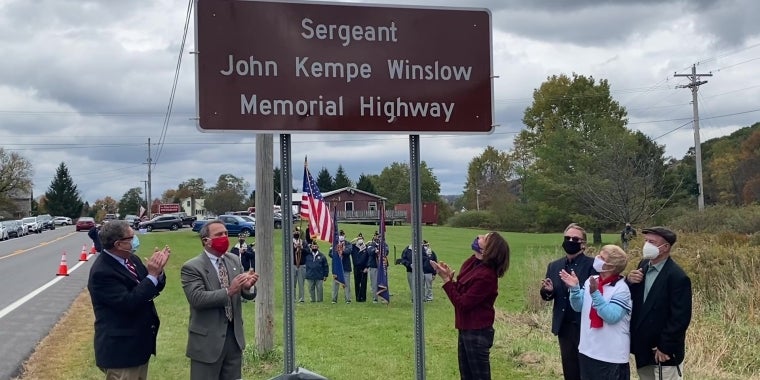
Senators Announce Cortland Biofuels Plant
New York State Senators James Seward (R/C/I-Milford) and Thomas Libous (R/I/C-Binghamton) today announced a state senate award of $4 million for the creation of the New York Center for Liquid Biofuels at Morrisville State College with a facility based in Cortland County. The grant for the center will help fund a biodiesel infrastructure in New York State through the construction of an oilseed crushing and biodiesel processing plant and extensive research in the use of biofuels and byproducts. The first phase of the project will directly create 20 jobs. It is also expected to
create approximately 130 jobs in the agriculture sector./
Morrisville State College and its research partner, Empire AgriFuel, LLC, will construct an oilseed crushing and "green" biofuel blending facility on Route 11 in Cortlandville, N.Y. The crushing plant will initially be capable of handling up to 200 tons per day, or approximately 2.4 million bushels of soy and or canola per year, and produce 5 million gallons of clean, "green" biodiesel.
"This is a terrific step forward for the economy of central New York, for agriculture, and for renewable energy," Senator Seward said. "The plant will mean a significant shot in the arm for our area from Binghamton right to Morrisville, with a facility here in Cortland. The state senate is partnering with higher education and business to grow our economy, boost agriculture, and help our environment." "With rising oil and gas costs, biofuels are one of the keys to our energy future," said Senator Libous. "And smart partnerships between the Senate, our top-notch SUNY schools and private companies will help our region stay at the cutting edge."
Dr. Raymond Cross, president of Morrisville State College, said, "We are extremely grateful to the New York State Legislature, and especially Senators Seward and Libous for their vision, dedication and commitment to bringing this project to fruition.
"The effects of this project will touch many economic sectors, ultimately resulting in benefits to the citizens of the region and state. We hope the research Morrisville State College, through the New York Center for Liquid Biofuels, intends to conduct will blaze a trail for biodiesel applications, positioning the upstate region to lead the nation."
Groundbreaking research in the use of biofuels in locomotive transportation will be conducted in biodiesel use and production, including emissions, stability, performance and options for by-products. Through collaboration with the New York Susquehanna and Western Railroad, the center also plans to establish a research facility in Binghamton.
"Renewable energy technologies are the largest economic opportunity of the next decade," said Paul Slowey, chairman of the Cortland County BDC-IDA. "This project is a great example of an education, industry and government partnership to advance Upstate New York's economy. It will be a catalyst for other projects, and clearly help put this region on the map as a 'green tech' leader."
Based on a model developed by Morrisville State College, the project creates regional economic gains at every step of the process – from feedstock growth, to oil seed and biofuel production, to the end user. The total economic impact, both direct and associated, is projected to be more than $47 million, through anticipated increased soybean value, output of the crushing and blending plants, wages, construction and ancillary revenue.
The project will also advance upstate New York as an emerging leader in the development and commercialization of renewable fuel technology, as well as increase market demand for New York State soybean and canola growers.
According to the New York State Department of Agriculture and Markets, New York farmers harvested 9 million bushels of soybeans in 2006, and the rate of soybean production in the state has increased approximately 20 percent per year since 2000. Soybeans are extremely well suited for growing in upstate New York, and technological advances have made soy even more viable, as both a main crop and rotator for corn. The project could increase the value of soybeans in New York by 30 cents per bushel.
The project supports the goal of developing a "green core" and is a model for an education-industry collaboration that can help solve our nation’s critical energy challenges, stimulate regional economies, and enhance the viability of New York State’s rich agricultural land base.
The grant was designated by Sens. Libous and Seward and will be administered by the SUNY Research Foundation. Sen. Libous is chairman of the Senate Transportation Committee, and Sen. Seward serves on the Senate Agriculture Committee.



